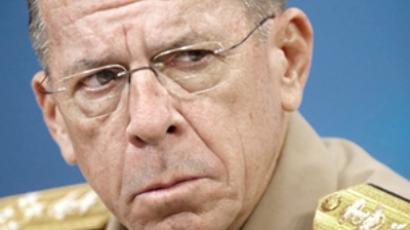The phantom menace: book fuels US fear-mongering over Iran

A book published in Iran describing suicide bombings has emerged in the US sparking a media frenzy on American channels, for which peddling fear and vilifying the Islamic republic is a common occurrence.
The book, found in the Arizona desert, has put America’s most watched cable news channel on high alert.As the book had reportedly been published in Iran and contained information on suicide bombers, that was enough to trigger sensational suggestions that Iranians could be plotting something inside the US.The fact there were no facts behind the story did not stop the channel from making a big scary deal of it – although the reporter did point out at the end “it could mean something, it could also mean nothing”.The international community is worried about Iran, but the American media go way beyond that – seeking to make the country the world’s bogeyman, the biggest threat on earth.William Beeman, specialist in Middle East Studies at the University of Minnesota, points out that “No politician ever lost a vote by attacking Iran, no news outlet ever got negative publicity from attacking Iran. It is an industry in the United States that whenever you have something negative that you want to say about the Middle East or about the Islamic world – you can always attack Iran.”Every chance is taken to toss Iran into stories that have no connection with it, like the suicide bombings in Moscow.Political commentator Bill O’Reilly ended up saying that such bombings are going to help the US “in places like Iran, to get more Russian cooperation with Al Qaeda and Afghanistan and things like that. Maybe they [Russians] are going to wise up and help us a little bit.”The pick-and-choose style of reporting which shapes the American news agenda became all the more obvious in the wake of the WikiLeaks release of US secret diplomatic cables. Despite having vast amounts of material at their disposal to choose from, the New York Times chose to go biggest on Iran – with a four-page article solely focusing on the country.
But the demonization of Iran is not new in the US media: it’s been going on for years – despite no proof Tehran was building nuclear bombs. Expressions like “These people are out to kill us,” “This is the most dangerous country in the world”, “The world must understands how evil this [Iranian] regime is” when speaking about Iran are not rare at all on American TV.A statement like, “Nuclear Iran can pass on nuclear capabilities to terrorist organizations” could be taken seriously in the US, where they can question in earnest “Why America is sitting there like a patsy waiting to get spanked, smacked, killed, while whole cities are going to be hit with a nuke?”Some American news outlets have been major cheerleaders in fear-mongering, which back in 2003 led to a war that was started on lies. “The same people who’re saying they want to ‘cause regime change in Iraq’ are now saying they want to cause ‘regime change’ in Iran,” mocks former CIA officer Ray McGovern.Robert Naiman, Policy Director at Just Foreign Policy believes that, “Blaming Iran is a way to get people to accept things they would not accept otherwise.”Fear-mongering can have major consequences – creating a climate of threat, which could justify any action in the name of providing safety for the American people. That is just what happened in Iraq where a frenzy about long-range weapons of mass destruction and links to Al Qaeda was whipped up to justify the invasion, reasons later proven to be false. The question is could the same approach be now happening with Iran? A bit of news about a suspicious Iranian book in the middle of nowhere is nothing, but as the news reporter pointed out “In isolation this is just a piece of information. We do not know, maybe a month from now, maybe a year from now it will be ‘hey, remember that report?’ – that is how I look at news very often – it is cumulative.”As far as the viewers are concerned, fear is also cumulative.













